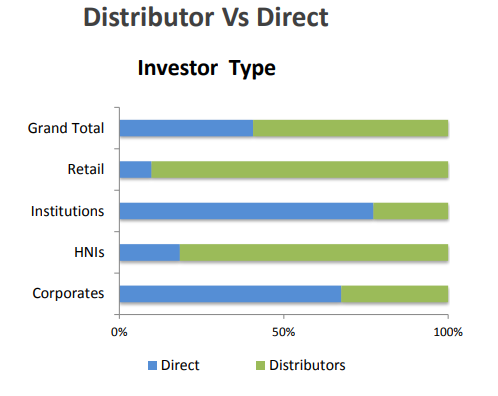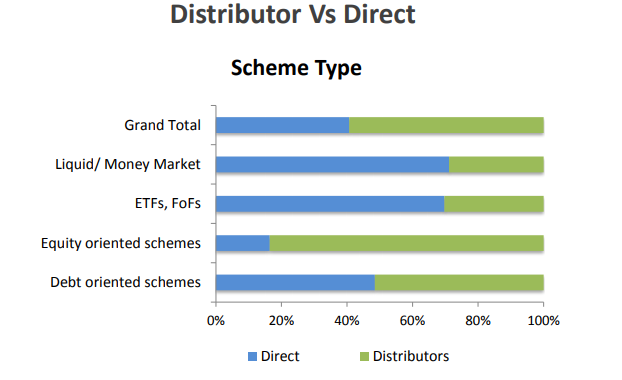Direct plans of mutual funds may still take some time to gain momentum among retail investors. AMFI’s latest data shows that 90% of retail AUM was in regular plans of mutual funds in FY 2017-18.
Surprisingly, a large number of HNIs, who generally prefer going direct, have invested in mutual funds through regular plans. AMFI data shows that 82% of HNI assets were in regular plans of mutual funds. HNIs are investors who invest with a ticket size of Rs.5 lakh or above.
Experts say that retail investors prefer handholding by advisors to invest in mutual funds. “Many investors, especially the first time investors, prefer advisors as they want handholding. The trust factor also comes into play in this scenario. Another factor that has contributed to the growth of regular plans is online platforms. Many distributors and online distribution platforms use digital technology to execute transaction in mutual funds,” said a CMO of a mid-sized fund house.
Mumbai-based IFA Sadashiv Phene believes that while the retail AUM in regular plans have increased in absolute terms, the percentage of retail investors going direct has also grown last fiscal. “Investors investing in mutual funds through direct plans are also increasing. These are investors who are comfortable with technology and do not need handholding.”
In percentage terms, 10% of retail assets in mutual funds was through direct plans last fiscal as against 9% in FY 2016-17. Similarly, assets of direct investment of HNIs have increased from 16.62% to 18.4% in FY 2017-18. The overall growth in the market may be one of the reasons behind the increase in the AUM of the direct plans. The BSE Sensex has increased by 11% in FY 2017-18.

The AMFI data also gives a break-up of the AUM under regular and direct plans in various schemes. It showed that regular plans are most preferred for investing in equity-oriented schemes. Nearly 84% of AUM in equity-oriented schemes came from distributors. Equity-oriented schemes include equity and balanced funds.
However, this data includes individual and institutional investments in equity-oriented schemes. If we take the assets under individual investors, 93% of the individual AUM was under a regular plan.
“The proportion of direct investments in equity, to the total assets held by individual investors, was about 7% in March 2018,” says AMFI.
Individual investors include retail and HNIs.
Among other categories of schemes, debt-oriented schemes also had a higher AUM under regular plans. Distributors managed 52% of the AUM of debt-oriented funds.

On the other hand, institutional investors continued to prefer direct plans. In March 2018, 71% of the liquid scheme assets were in direct plans.






